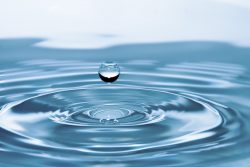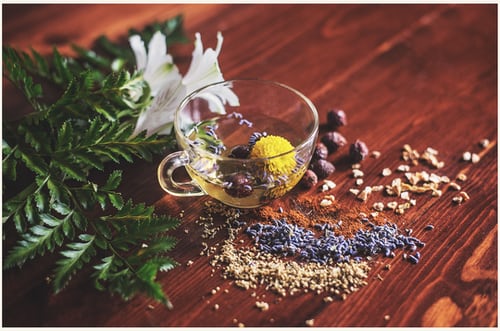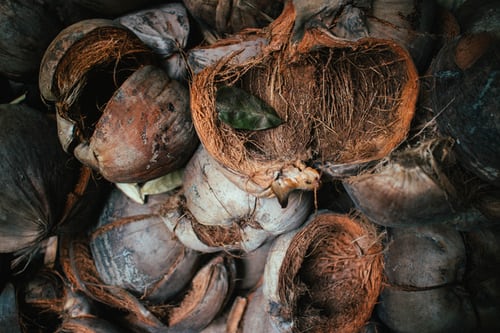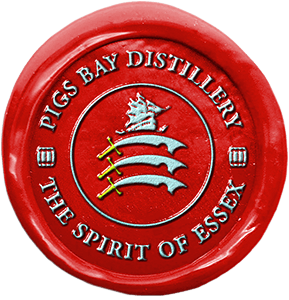“Molecular Distollogy”, “Mixology” and “Micro Porosity” are all terms that customers have labelled our state of the art, futuristic and unique processes, that create our “malt like” super smooth spirits that we call the Spirit of Essex.
So what’s different?

Water
Well let’s start with the water. Most scotch distilleries claim that their water is the key to their uniqueness of spirit. So it is sensible for an Essex distillery to want to use its own water. We believe that we should celebrate our water because it is great. OK, we are not using it straight out of the tap. We don’t live in Peckham! We have installed our own water treatment system. In fact two systems. First a softening treatment and the second is a 4 stage Reverse Osmosis system with de-ionisation. Forget the technical stuff, the result is super pure, medical level purity of water.
Read more on the purity of our water here
Botanicals
We are pioneering the production of Gins and Gin Liqueurs using laboratory produced natural liquified botanicals and flavours. This has involved brand new supplier chains being established because this is only common outside the UK. Our new supplier chain involves imports from New Zealand as well as setting up new manufacturing processes in the UK. Pigs Bay is the first commercial distillery using this supplier chain. Why are we doing this? The answer is so that we can produce a much higher quality of spirit. Liquid botanicals mean a consistency of quality flavour. It removes the uncertainty in flavour of natural botanicals, and it enables Pigs Bay’s Mixology specialist to quickly create new drinks in test mode using small quantities in rapid succession.

Does this mean that Pigs Bay does not use natural botanicals? Of course not. Our Southend Gin is entirely natural. But our Essex Pink is created using this new Mixology process. ALL Pigs Bay gins are based upon a London Dry Gin distilled from natural botanicals in our own still. We refer to it as our base gin. We don’t sell it, we use it as the platform on which to add liquid botanicals to create our stunning new gins.
Distillation
After fermentation, the process of distillation is to extract the drinkable alcohol (ethanol) from the undrinkable alcohols in the wash (methanol, acetone etc). All alcohols boil at different temperatures.
In our research it was quite confusing to read distillery USPs including large 200 year old copper stills or watching distillers using their skills (guesswork) to judge when the ethanol was exiting the still and hence to start collecting it and then again when its finished. Surely there are more modern stills that are temperature controlled and can scientifically separate the alcohols. Well of course there are, but we just had to look outside the UK to find them.
Another poor argument, in our minds, was the fact that there is still this desire and belief that fermentation and distillation should be a hands-on trade. Sorry, we are from the modern world of automation and we will as we grow, install computer systems to control all our activity so that we can use science to create the most perfect spirits.
Filtration
The fact that ALL Pigs Bay Spirits are filtered is, we believe, unique in the industry and is our USP. Some things have to remain secret, and we have worked long and hard to learn how to do this.
Filtration is the process of running spirits through activated carbon charcoal. It’s called polishing the spirit. Removing any last impurity and creating that smoothness of taste.
However, charcoal removes flavour as well as impurities, hence why distilleries do not filter gins or any flavoured product. Distilleries create their gins inside the still using natural botanicals and what comes out of the still is what goes into the bottle. Hence the reason, there can be no filtration. In our opinion Pigs Bay believes most gins suffer that harshness of taste because of this lack of filtration.
Pigs Bay process will remain secret, but we do filter. In fact, we not only filter through charcoal, but we then filter through coconut shell. Coconut is the premium filtration media and expensive, but we think it is worth it.

Most, if not all distilleries, only filter vodka because it carries no flavour. Most commercial filtration systems pump the alcohol through the carbon. Why? The answer is speed. Pigs Bay does not. We gravity filter. Why? Because the success of filtration is dependent on how long the alcohol is exposed to the charcoal, thus a slow movement through it is essential. The charcoal is minute sand like particles, but each is like a sponge in composition. The impurities are caught within or stick to the charcoal. If you pump it, then the impurities are simply pushed through or around the particles and out the other side and remain in the spirit. Bottles that advertise “filtered 5 times” means nothing if it’s pumped.
At Pigs Bay we gravity feed the alcohol with flow restrictors to allow the alcohol to sit in the charcoal and move frustratingly slowly in order to polish the spirit with maximum effect. However once done, we then repeat the process using coconut shell ground to micro size as per the charcoal. Simple put it takes days, but when you taste a Pigs Bay, it is worth the wait.
We worked out that one bottle of spirit trickles over an area of charcoal and coconut that is equivalent to an area of 6 football pitches. This is because of the micro-porosity of our filtration charcoal and coconut.
As they say “Good things come to those that wait”.
Why not go to the shop and order a taster pack and try it for yourself.
